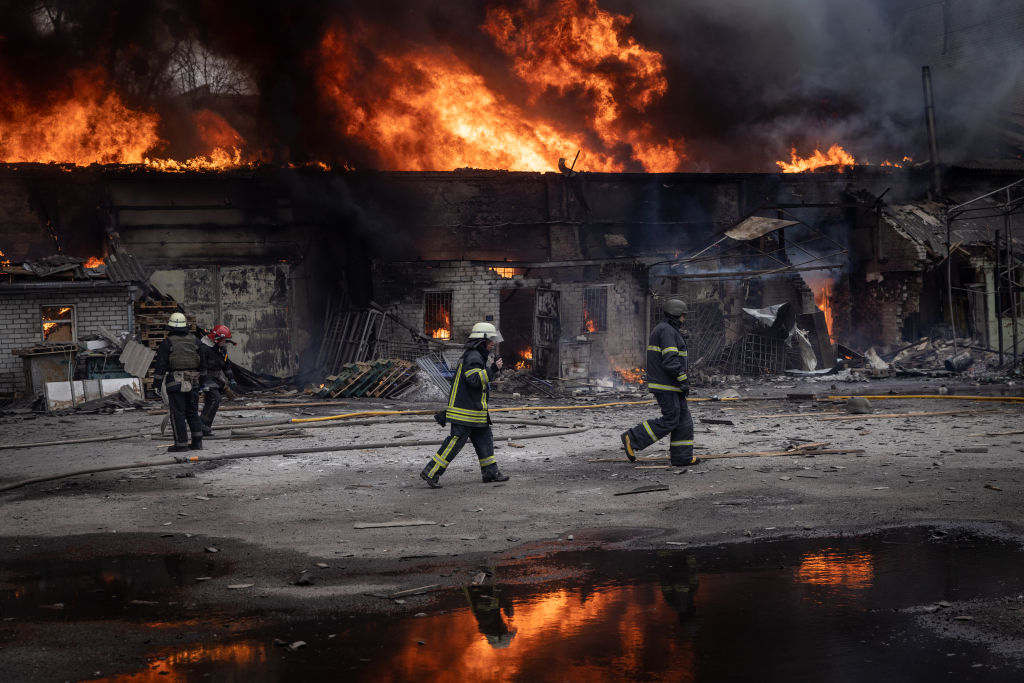Nations allowing a deluge of Russian money are a threat to our global democracies

In the month since Russia’s invasion of Ukraine, the West has come together to face what could be the greatest military crisis since the beginning of the Cold War. This has clearly wrong-footed Putin and the invasion has not gone according to his plan.
This geopolitical explosion has been a long time in the making, however, and the forces behind it have been gathering steam for some time. Now, we urgently need a strategy to correct the mistakes we have made as we ignored these forces in the past.
That strategy should, first of all, recognise what we have missed. We have either failed to see or turned a blind eye to bad actors exploiting the weaknesses in our global system.
In effect, we have been letting these malign forces in through the back door. Many are now recognising this threat. The Foreign Affairs Select Committee has launched an inquiry into this very subject and its findings will not make easy reading.
The situation is extremely dangerous. The modus operandi of malign actors is to exploit jurisdictions that are part of key international economic and political networks, with ties to desirable centres for capital – like London. They then use these jurisdictions for money-laundering or criminal activity.
The states they target are often inherently weak in some way – such as in their compliance or governance structures.
While many of these vulnerable nodes have been identified by international governance regimes, such as the Financial Action Task Force (FATF), more must be done to ensure that these states are given the support required to protect and extricate themselves from these malicious actors.
The UK, through the FCDO, has a critical role to play here. Britain has long held other countries to account and supported democracy, and the recently announced commitment of $100bn in Africa and the Caribbean signals a continued dedication to this role.
The illicit flow of funds into Malta, however, should be a particular concern. An EU state and Commonwealth member, Malta is a well-known destination for Russian funds. Historically the nation has also been the EU visa of choice for Russian oligarchs. Increasingly, as other safe havens such as Cyprus have become targets, the Kremlin’s allies are turning their sights to Malta.
At least a quarter of the new Maltese citizens in 2020 come from Russia, Belarus and Azerbaijan. The latest list includes Andrey Turba, the general director of sanctioned Russian oil transport Transneft. While the Maltese visa-for-investment scheme was, with much reluctance from Prime Minister Robert Abela, suspended for Russian nationals, the more dubious individuals are still able to base their operations out of Malta, making it all the more likely it will become a hub for illicit activities.
Networks of illicit activities are closely linked. Whether it is copyright piracy, human trafficking, terrorist financing, or the sale of nuclear weapons and technology, the same multinational criminal networks are invariably involved.
In a meeting with US officials, concerns were voiced over Russia’s role in the financing of Maltese operations involved in fuel smuggling, some potentially destined for blacklisted Syrian forces. The Russians and their mercenary Wagner Group, Putin’s military proxy of choice, has for some years used the island as a conduit for its activities in Libya. A seizure of more than $1bn in counterfeit Libyan money in 2020 shows us as much.
The flow of illicit money establishes a downward spiral, creating an environment for corruption.
Sanctions on Russia will not stop this spiral – China and Central Asian money of equally questionable provenance will fill the gap. Malta enjoys strong ties to China, another autocratic regime keen to exert its influence geopolitically. It even owns part of Enemalta, Malta’s state energy company.
States such as Malta are chinks in the armour of democracies around the world. They must choose which system they belong to, they can no longer dawdle in the murky waters of grey areas.
This is a moment for the forces of good to step up, acting together to uphold democracy and stand firm alongside Ukraine.
In tightening up our global systems, we remember we hold this system in trust for our children and theirs, and at this terrible moment, the children of Ukraine.